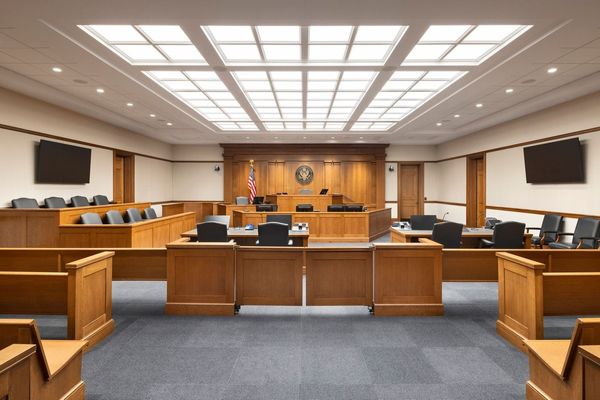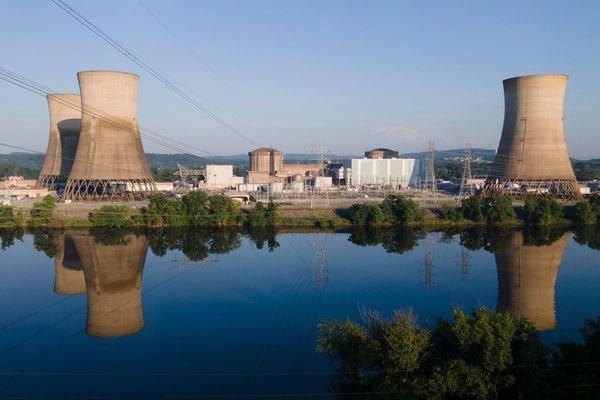
Jeremy Hunt, the new chancellor, proclaimed himself a proud green Tory in March this year when he joined the Conservative Environment Network of MPs.
He said at the time: “Now more than ever, in light of the global gas crisis and Russia’s invasion of Ukraine, it’s vital we decarbonise the UK’s economy by 2050. We must develop more homegrown clean energy, including renewables and new nuclear. This will lower people’s bills, strengthen our energy security and avoid the worst consequences of climate change.”
Now is his chance to put his words into action. As he faces, by some estimates, a gaping hole of least £60bn in the country’s finances, a roster of clear green measures, big and small, could help him plug the gap. Doug Parr, the UK policy director at Greenpeace, said: “If this chancellor can grasp that the same fixes can ease both the cost of living crisis and the climate crisis, he’ll be laughing.”
First up is the £150bn the government was going to spend on subsidising people’s energy bills, now to be scaled back from April and refocused by Hunt on the poorest. This is a good start, but further reform will help.
As well as changing the targeting, the chancellor can cut the bill to the exchequer with some simple measures. Home insulation will be key. Britain has the draughtiest homes in western Europe and insulation rates dropped by 90% under David Cameron’s leadership. Insulation was ignored by the previous chancellor, Kwasi Kwarteng, but Hunt on Monday indicated it could be back on the table. Even now, in autumn, it is not too late to make a start, according to the former Conservative environment minister and current chair of the Climate Change Committee, Lord Deben.
A nationwide insulation programme could cost £5bn, but could boost the economy by £7bn, creating jobs and cutting waste. As a former health secretary, Hunt will also know that cold damp homes make people ill, so helping them stay warmer will reduce pressure on the NHS.
At the same time, the chancellor could restore and expand the £15m public information campaign on energy saving that Liz Truss cancelled, apparently for ideological reasons to avoid the appearance of “nannying”.
Every unit of energy saved by households means the government would need to spend less paying their bills. Some tips are obvious – wear a jumper, turn down the thermostat – yet there are many measures, such as changing the flow temperature of a condensing boiler – which can knock 8% off gas usage without making people any colder – that are slightly technical or that most people are unaware of.
The current windfall tax on the bumper profits of energy companies is feeble and could be better designed to recoup tens of billions more. While he’s at it, the chancellor should cut some of the other needless tax breaks given to fossil fuel companies. Tessa Khan, the director of Uplift, which campaigns against the expansion of North Sea oil and gas, said: “We need wholesale reform of the entire tax regime for the North Sea, which has for years meant some fossil fuel giants have paid no tax, or negative tax, in the UK, despite making vast profits.”
Hunt has opposed fracking, at least in his own constituency, so should need little persuasion to shelve the potentially costly tax breaks for fracking too.
Some renewable energy companies have also made outsize profits from rising electricity prices. These companies can be encouraged to give up or reinvest some of the gains through reforms to the electricity market, which should be hastened. Solar is also several times cheaper than gas, so Truss’s plans to halt solar farms are also in effect costing the UK and should be another U-turn.
Green measures have too often been presented as a “burden”, but many produce a clear financial return. Air passenger duty does not touch the half of people in England who do not take a flight in any year, and can be targeted both on routes that have a rail alternative to encourage greener train travel and on frequent flyers and long-haul routes.
Scrapping the expansion of airports and cutting down the £27bn road-building scheme will also cut greenhouse gas emissions and save money.
Private sector investment will also be key to boosting economic growth as the UK heads for recession. Ed Matthew, the campaign director at the E3G thinktank, said investors were seeking green opportunities: “The chancellor must put a green financial system at the heart of his strategy. A net zero investment plan is needed to maximise the leverage of private finance into the net zero transition. This could provide a huge boost to the economy.”
Finally, SUVs are a rapidly growing blight on our city streets, increasing air pollution and driving up fuel use. Taxing them adequately would help to top up Treasury coffers, reduce expensive oil imports and send a clear signal that the richest road users are not exempt from austerity.
Mike Childs, the head of policy at Friends of the Earth, said: “To fund the transformation we need to see, the UK government must adopt the ‘polluter pays’ principle. We need to see a big increase in vehicle tax rates for luxury cars and SUVs, alongside greater road user charging such as low emissions zones to help pay for better public transport, cycling and walking infrastructure.”







